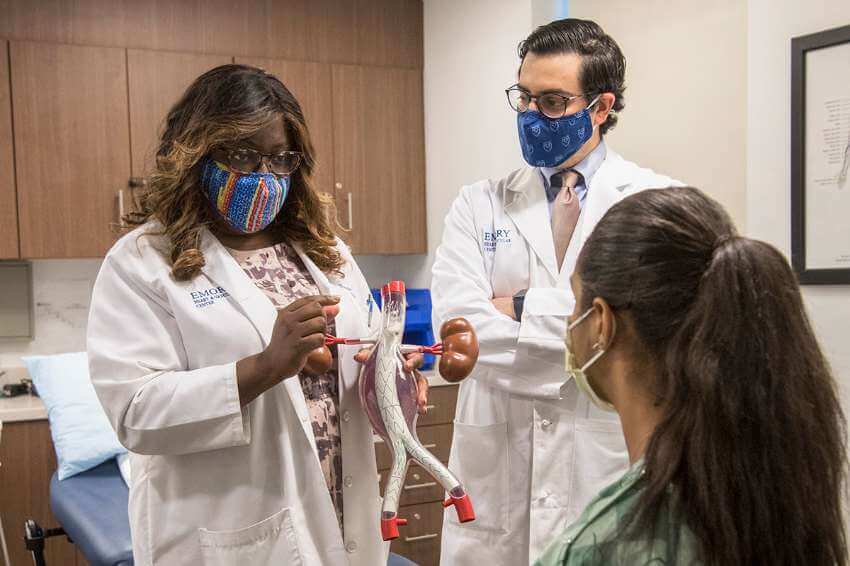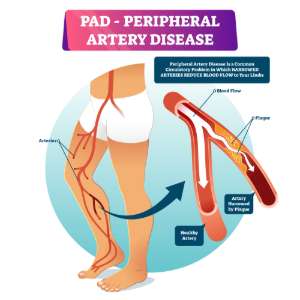New research led by Emory Healthcare, in partnership with the Veterans Health Administration, is shining a light on the need for better medical interventions and more aggressive treatment for veterans with peripheral artery disease (PAD), a serious condition found in 10 million U.S. individuals nationwide that is one of the leading causes of the 185,000 major lower extremity amputations that happen each year.
In a study published Wednesday morning in JAMA Surgery, lead author Olamide Alabi, MD, a vascular surgeon who splits her time between Emory Healthcare and the VA (Veterans Affairs) Atlanta Healthcare System, investigated ten years’ worth of health records from the U.S. Department of Veteran Health Affairs, the nation’s largest integrated health care system. To better understand what happened to the veterans who lost their limbs during the study period of 2010-20, Alabi and her team wanted to examine health care utilization in the year before amputation.
Looking closely at the varied paths taken by more than 19,000 patients who went through amputation, Alabi and her team identified several factors that impacted the quality and intensity of care these patients received prior to that major loss of limb, such as distance to primary care and geographic region.



